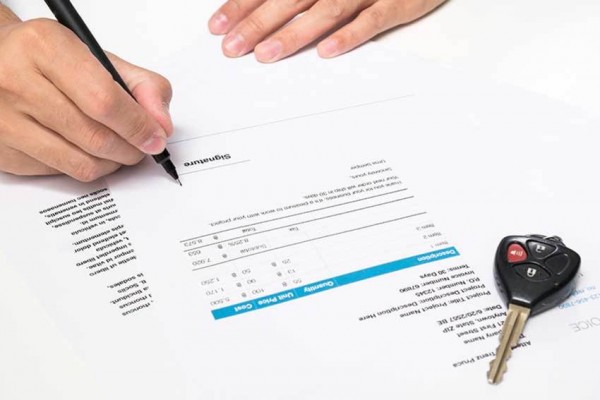Having the right paperwork on your car can prevent you from having to pay penalties and fees. Sometimes, the procedures for registering or transferring ownership of a vehicle can seem cumbersome, and the consumer may feel confused by the fact that different states may have different requirements. It is important to check with your state’s Department of Motor Vehicles (DMV) to determine their process for maintaining proper vehicle documentation.
Car Titles
A car title is an official document indicating ownership of a vehicle. The title document also allows for transfer of ownership if an owner decides to sell.
A person who has paid off or bought a car outright will be given the old owner’s title while someone who has obtained a loan to purchase the vehicle will not be considered to fully own the car until that loan is paid off. In these situations, the lien holder is also listed on the car’s title until it is paid off. There will be instructions on the title itself for documenting any transfer of ownership.
New York, for example, requires that individuals wishing to obtain a title must fill out an application for a new title and bring that in to the DMV along with the old one to pay the registration, licensing and title fees. Vehicles that have liens on them may have additional instructions requiring permission by the lien holder in order to transfer the title. Some states have pretty strict requirements about when a transfer of ownership must be reported to the DMV. California, for example, requires that both sellers and buyers report the change. Buyers are given 10 days to report the sale and pay the transfer fees while sellers are given five days to report it. In Maryland, you can process your car title and other vehicle documents at a MVA office.
Car Titles and Car Registrations
A car title is different from a car registration. The title indicates ownership whereas a registration indicates the driver is allowed to use the motor vehicle. Car titles should not be kept in the vehicle but should be kept in a safe place with other records. On the other hand, people should keep their car registrations within the vehicle in case of an accident or traffic stop. If you are pulled over and are unable to produce the requested documentation, you may be cited for a lost vehicle registration. It is possible to get a title on a car without registering it, but owners must not drive or use the vehicle until it is properly registered.
Maintaining Car Registrations
Vehicle owners will register a car upon moving to a new state or upon transferring ownership of a vehicle. Most states require registrations to be renewed every year. In the past, this required a trip to the DMV to pay the registration fee, but most states now allow consumers to complete this transaction through their website. Given how notorious the DMV is for long, slow lines, most people opt for the online option.
Being sure to properly document your vehicle is important if you want to avoid penalties or late fees. To increase security, you can try to tamperproof your documents. Forgetting to renew a vehicle registration could be costly if pulled over, so don’t put it off!









